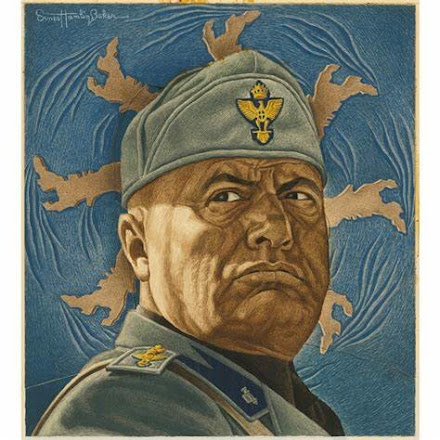The Totalitarians: Hitler, Mussolini, and Stalin
The
Totalitarians: Hitler, Mussolini, and Stalin
Polish Air Force engages the new Luftwaffe
1939, Poland.
Perhaps the clearest
demonstration of where exactly the Western countries stood in 1939, with
respect to Adolf Hitler and Germany, is that after the Germans finally invaded
Poland in the dark hours of 1 September 1939, it took until 3 September for
Britain and France to declare war on Germany. The British waited while the
French delayed. A summation, then, of all that was both France and Great
Britain with Poland suffering the first blows of what would become the most
costly, horrific, and all-consuming World War the engulfed millions of lives.
The end of the Great War left the
European continent unbalanced. Of the Allies, the French believed the Germans
guilty and that war reparations were hardly enough to compensate for the
devastation France had suffered. Of the many by products of the Great War,
cranage and devastation was visited across Eastern France and the war had
hardly touched Germany proper. The British has suffered from the loss of men; a
whole generation and the financial cost had set the exchequer back for some
time. Of the United States, the Great War left an impression that tremendous
costs were associated with great power competition. The United States could
hardly stay the course with respect to involving herself in international
affairs and withdrew into isolation.
Germany experienced disillusionment,
frustration, and anger. Despite whatever mistakes Germany made economically in
the post-war years, the political and social conditions set the stage for the
rise of Adolf Hitler and the Nationalist Socialist Workers Party (NSDP). Hitler
came to power legitimately “because of support registered by German voters in
1932”[1]
and the German middle class, in the main, supported the early concepts and
ideology of Hitler and his political party.
hopeful to avoid any conflagration. The British Prime Minister in 1937 believed that conflict; another war much like the Great War should be avoided at all costs. But Chamberlains disposition and diplomacy experienced severe criticism.
The “most effective answer Chamberlain could have made to these criticisms was that ‘standing up to Hitler’, with or without the League and the Soviet Union, involved a serious risk of war.”[2]
In 1938 Germany would invest itself
in Austria. Germany would then threaten war; simply threaten conflict with
Europe and the Europeans turned their eyes as Germany rolled up the
Sudetenland. But Hitler was not complete. He would order German forces into
Memel, Lithuania in 1939 and any claim to Danzig and the ‘Polish Corridor.’
War, unwished for by the unprepared, was coming to Europe in spades.
Benito Mussolini (“Il Duce”) was
ultimately welcomed by both the working class and the middle conservative class
of Italy.
Like Hitler, Mussolini was
self-taught, an ardent Socialist, and served in World War I. He spent over 8
months in the trenches as an Infantryman with the Bersagliari.
As for Joseph Stalin, he rose
through the ranks of the Bolshevik revolution on the coat tails of Vladimir
Lenin. After Lenin’s death in 1924, Stalin consolidated power and ultimately
became the supreme leader.
Prior to the start of hostilities, “Stalin hesitated for almost two weeks in May-June 1937 before giving the NKVD the go ahead for the purge of the top Red Army leadership.”[4]
When it was done, over 35,000
Officers had been dismissed with well over 4,000 murdered. Of course, after
1941, the previously dismissed were all ordered back to active duty. One such
officer ordered back to duty from imprisonment: Konstantin Rokossovsky.
[1] R.A.C. Parker, The Second World War: A
Short History, (Oxford, UK: Oxford University Press, 1989), 2.
[4] Peter Whitewood, The Red Army and the Great Terror: Stalin's Purge of the Soviet Military, (Lawrence: University Press of Kansas, 2015).








Comments
Post a Comment